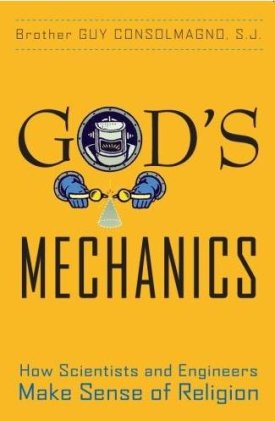
To skip my diatribe and see the curvaceous, well rounded, beauty - scroll to the bottom of this post....
I am a theologian, but I am also a student of the natural sciences. Straight from school I spent some time studying science, and both my theology Masters, and my Doctoral work focussed on theology and science.
I have spent years trying to understand atoms, and sub atomic particles, trying to fathom the complexity of the EPR (that's Einstein, Rosen and Podolsky) 'tunneling effect', and how quantum theory can relate to the faith that I have in a God who holds everything in existence moment by moment.
I've just recently had to go through a whole stack of my foundational work in this regard for a book I've just finished writing about the Cosmic Christ (I'll post about that separately). I have a great appreciatoin for the minds that have formed the western scientific paradigm (by my mind the most important of them are), but they have also caused us some problems (which relate to the curves you'll see below):
- Plato who emphasized, in a clear philosophical system that material reality was distinct (although only a 'poor copy' of the truer spiritual reality it reflected). The positive development was the recognition of material reality as distinct, the negative element was the duality created between spirit and matter.
- Next, in my mind, was the philosophy of Rene Descartes (the famous 'I think, therefore I am' man. cogito ergo sum, although I have always thought it should be cogito, cogito, ergo, cogito sum (I think, I think, therefore I think I am...) Just kidding. Oh, and by the way, his name is pronounced "day car", NOT "des car tes"!). Descartes' philosophy of being developed the Aristotelian principle of 'matter' being an 'extension of mind' (res cogitans and res extensa). In short, he asked the question "How can I be sure that I TRULY exist?" i.e., how could he be sure that his body, the world, and everything else was not just a dream (like a bad episode of the 80's soap Opera Dallas when JR Ewing was shot - if you're too young to remember - google it! ). So, he couldn't sure that anything that he thought was real (i.e., material reality) could be truly trusted. The only thing that he could be certain of was that he was thinking (i.e., that he was a sentient, thinking being, thinking about what existed) - hence the statement "I think, therefore I am". The positive step in this was that it created an 'objective' and a 'subjective' reality (i.e., something that the res cogitans could observe, res extensa). The downside was that it further removed the sacred, spiritual, and sentience, from material reality - the duality between spirit and matter was widened.
- Next came the English physicists Sir Isaac Newton, under whose tree (you remember, the one from which the apple supposedly fell that started the whole 'gravity thing') I have stood under in Cambridge! I'll post the photo to prove it! Newton discovered, and suggested, that the whole of the material (objective) Universe could be objectively studied, and that when one did so one could determine clear and definable laws according to which it operated - these are what became known as the laws of physics. By understanding these laws you could thus understand all of material reality! This was quite a positive step for science! It is what made things like building bridges, flight, and car engines possible - engineering would be lost without it. However, the downside was that many people began to disregard, and doubt, the presence of God in in creation (if creation was more like a mathematically precise machine, than a living organism, then God's only role - if God existed at all, was simply to build the clock, wind it up, and watch it unwind).
- Next came another English philosopher, Sir Francis Bacon, he took Newton and Descartes theories a step further (by they way Newton and Descartes theories become commonly known as Newtonian - Cartesian logic). He suggested that 1) if material reality is separate from 'self', and material reality ran according to clearly deducible 'laws', then by discovering and manipulating these 'laws' one could control the destiny of material reality. The upside of this theory was that it held some truth! If you could work out how to harness the power of water to drive a turbine, to create electrical energy (something that only happened much later), you could get 'something for nothing' (or so it seemed at the time). The downside of this theory is that it is so devoid of any sense of harmony between humans and creation that it lead to the abuses of the industrial revolution, and almost all ecological abuse since! Certainly, America's unwillingness to sign the Kyoto protocol accord smacks of this kind of thinking "It doesn't matter what we do to the rest of creation, after all we're seperate from it! So, if the planet dies, it doesn't affect who and what we truly are - all that we need is to find ways to manipulate it to get what we want". Sad, but true. A further downside of this philosophical approach was that it ONLY VALUED those things that could be measured and quantified - read the works of the father of modern economics, Adam Smith, and you'll see that even people have a value attached to them... What you can earn and produce determines your worth. In the Baconian world, beauty, faith, happiness, and spirit had no value whatsoever because they could not accurately quantified, and because of that they could not be manipulated.
- For the first time in history material reality was seen as purely functional, completely devoid of God's sacred and loving power... And, so we abused it.
Now, that's the whole problem with the false dichotomy, and duality, that is created between material and spiritual reality! All of creation is God's creation! Sadly, because we no longer recognize that we think that the only place that we can worship is in Church!
Of course there have been MANY significant developments in science since then that show just how material reality is filled with God's divine power and presence. But you'll have to buy my next book to read about that! Ha ha!
So, here's the point that I was getting to when I started writing this post....
When God created the heavens and the earth, God said "
It is good..." (Gen 1). Moreover, we are told in Paul's (or the Pauline author's) letter to the Colossians that "
...by him [Jesus] all things were created: things in heaven and on earth, visible and invisible, whether thrones or powers or rulers or authorities; all things were created by him and for him. He is before all things, and in him all things hold together." (Col 1:16-17, emphasis mine).
That's what the Bible tells us, theology further shows us that God sanctifies created reality when he chooses to become 'incarnate' in it - the divine enters physical being! Moreover, have you ever thought that when Jesus ascended into the Godhead (Acts 1:9-11) he took atoms into the Trinitarian life! By this I mean, Jesus didn't leave his body behind, Jesus
fully God, fully human, and Nicea Constantinople creed tells us, ascended into the divine Trinitarian life.
So, next time we abuse creation, or choose to disregard it - remember that God has sanctified it, and if you abuse creation you are abusing the God who has entered created, material reality, and taken that material reality into the divine life of the Godhead!
The point is that today I decided to take my 1967 Vespa to the Kentucky Fried Chicken drive through! It was a spiritual experience! As I rode that curvy, rounded, beautiful orange scooter, I experienced the joy of being alive to God in Christ. It could feel the goodness of God's creation! God created the air, the sunset, the plants, and let me assure you, God created MY VESPA!

(the one on the left is mine... I used to own the one on the right as well, but she has gone to a good home and been replaced with a beast).So, my advice is, if you're going to live life, ENJOY IT! Find joy in God's creation, give God glory for what is around you. A creation spirituality, like all spirituality, is a discipline - it takes discipline to say "
Lord, I CHOOSE to see you in the world around me, active, alive, keeping all things in being. And, as I see you, I praise and thank you for your beauty, power, and love!"
Oh, and yes, I do enjoy writing as much as I enjoy riding my Vespa! Any other Vespa riders out there who want to join me for an occasional ride in the Pretoria area?
Tecnorati tags:
Spirituality,
creation,
Philosophy,
Plato,
Descartes,
Isaac Newton,
Francis Bacon,
sexy,
curves,
VespaLabels: philosophy, science, spirituality, Vespa
 This very interesting commentary comes from Boingboing.net (see the link at the end of the post):
This very interesting commentary comes from Boingboing.net (see the link at the end of the post):





 .
.
 .
.




